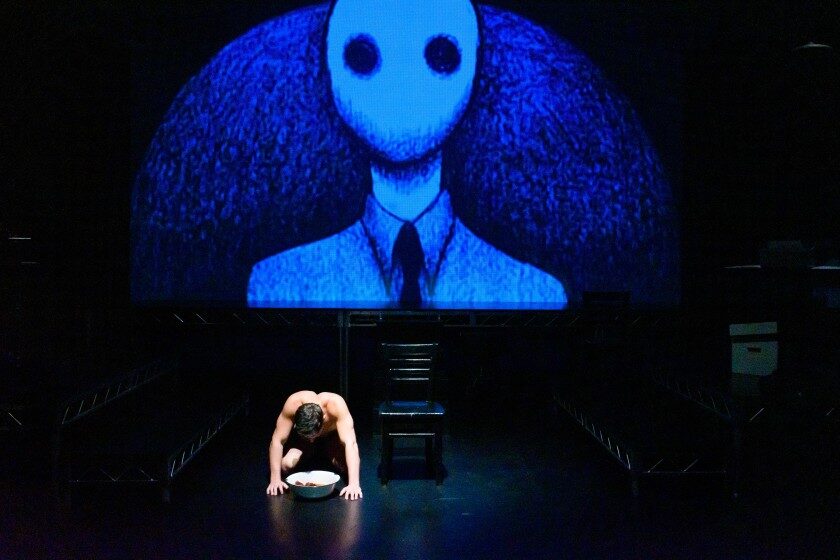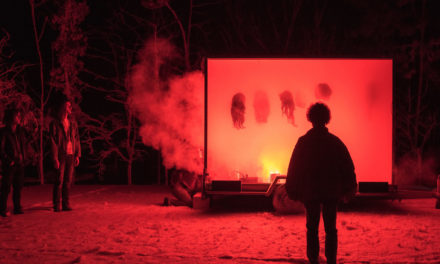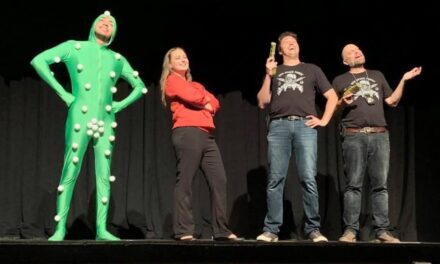LA theatre premiers Jeton Neziraj’s Department of Dreams.
Santa Monica’s City Garage Theatre is notoriously known for pushing controversy and actively acknowledges the existence of societal issues. The theatre prides itself on the creative and innovative plays it holds that stimulate conversation, allowing the theatre to be presented as an alternative option in the visual arts community. Something their audience draws comfort from. So perhaps, it was only natural for producing director (and playwright) Charles Duncombe and artistic director Frederique Michel to premier Kosovo’s Jeton Neziraj’s Department of Dreams.
The dystopian play challenges the idea of the subconscious and control, or more accurately, lack thereof. Neziraj uses the government to depict oppression and corruption; the autocratic running an already broken system to the ground. The modern play runs reminiscent of George Orwell’s 1984, running parallel to Kosovo’s limitations to art.
Duncombe and Michel sit down to discuss the Department of Dreams and the pandemic.
What inspired you to produce the Department of Dreams?
Duncombe: Well, we premiered new work by Jeton. His publisher sent us one of his plays and really loved it and thought that this was a great opportunity for a contemporary political writer who was very much invested in issues and ideas. A little bit about what attracted a great experience because also it was possible for the playwright to come to join us for the premiere. Jeton flew from Morocco for the weekend and our audience had a panel of scholars, academics and journalists. We talked about the political nature of [Jeton’s] writing and the rise of autocracies worldwide.
Did you find that it was a risk to produce the play or a play for the first time ever?
Michel: No absolutely not. I think if anything, it was a good thing. It is a good thing to welcome controversy. We like to do premieres whenever we have the opportunity to be challenging and dangerous.
Duncombe: We did a play called right left for heels by Sebastian Majewski a Polish writer. He was portraying trouble with the local Polish consulate in the new right-wing government in Poland.
Do you find that to increase their popularity, theatres prefer to produce something more traditional, so modern writers are not given the stage to perform on?
Michel: In our theatre, we welcome challenging work and are very interested in producing them. And we have a great audience who follow us and welcome our work. A majority of theatres, especially in Los Angeles, look for relatively safer conventional stories that aren’t going to speak to people in conventional emotional terms kind of like television, or movies. And right from the beginning, when we started, we have always tried to go a different way. We subscribe to the European model of theatre, which is found for ideas. People that are looking for an alternative to mainstream entertainment and to reflect.
Did you find the play to be overly controversial in today’s time, especially because the play features an oppressive government?
Duncombe: I think our audience is very much thinking about these ideas. They’re uncomfortable and sensitive to what’s happening in this country and sort of, the strange way the politics is colored by the lie. I think there wasn’t so much controversy in the sense of welcome relief, to see something that is addressing something the people are really alarmed about.
Although the theatre is temporarily closed, City Garage’s Youtube channel features their previous plays. While the theatre collection is available to be viewed with a donation, the classics are available to view for free every Friday and Saturday at eight o’clock.
This post was written by the author in their personal capacity.The opinions expressed in this article are the author’s own and do not reflect the view of The Theatre Times, their staff or collaborators.
This post was written by Ishita Verma.
The views expressed here belong to the author and do not necessarily reflect our views and opinions.


















